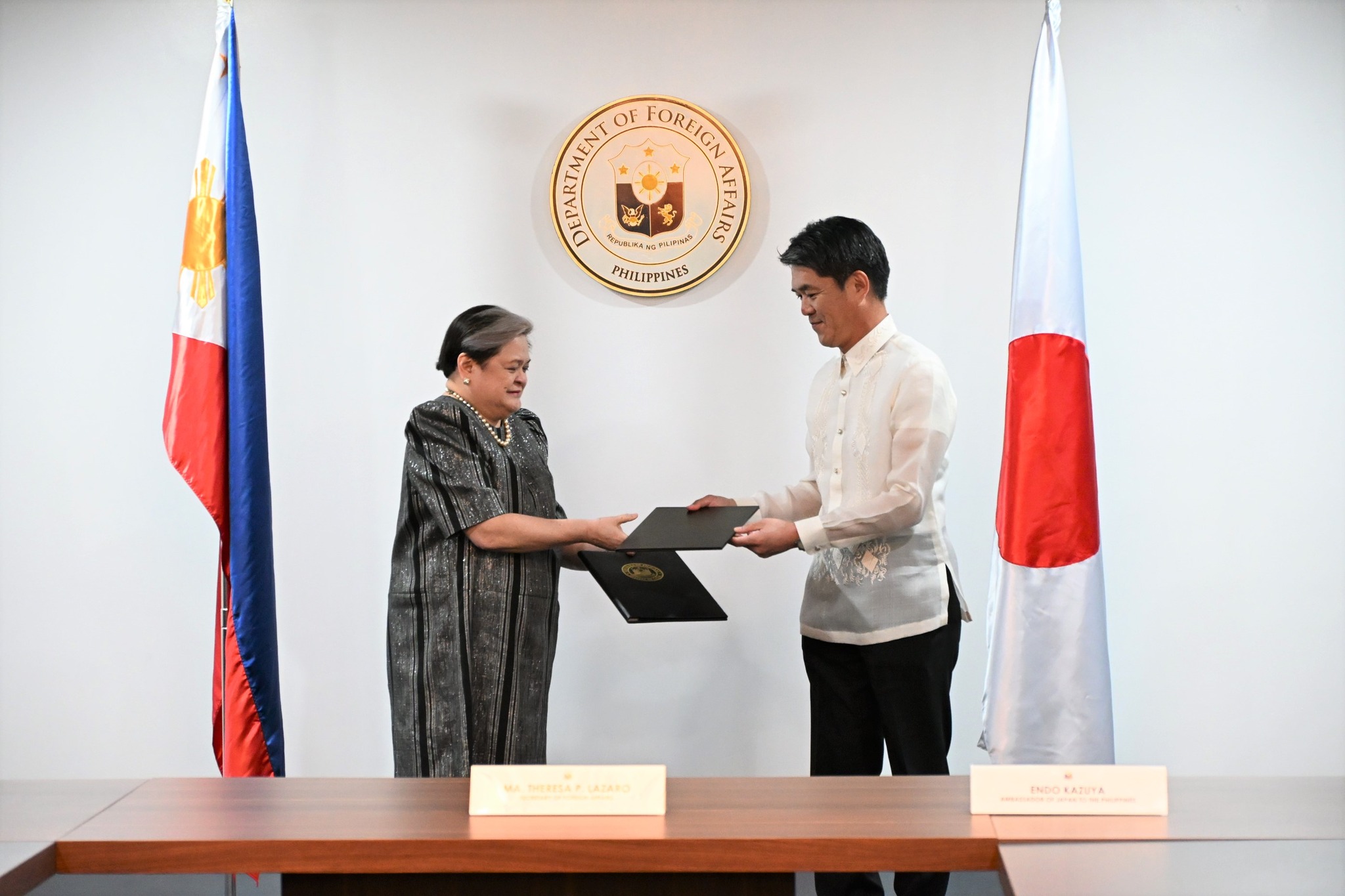
By Joyce Ann L. Rocamora | Philippine News Agency
The Reciprocal Access Agreement (RAA) between the Philippines and Japan will formally enter into force on Sept. 11, the Japanese Embassy in Manila announced on Tuesday.
Department of Foreign Affairs (DFA) Secretary Ma. Theresa Lazaro and Japanese Ambassador to the Philippines Endo Kazuya exchanged notes on the military deal in a ceremony in Pasay City.
The exchange of notes, witnessed by Defense Secretary Gilberto Teodoro Jr., confirms the completion of domestic procedures required for the implementation of the RAA.
In her toast remarks, Lazaro said the deal signals Japan’s “clear commitment” to the Philippines’ efforts to advance defense capabilities in support of its assertion of sovereignty and sovereign rights.
“In his fourth State of the Nation address last July, President Ferdinand Marcos Jr. said, ‘In the face of new threats to our peace and sovereignty, we are now more resolute in our preparations, vigilance, and self-defense,” she said.
“As the President has put it succinctly, our confidence is even greater because we have more allies who will stand with us in times of great need,” the DFA chief added.
Meanwhile, Endo said the upcoming entry into force of the deal speaks to the “strategic value” both states place on security and defense cooperation.
“Japan recognizes the Philippines as an indispensable partner, strategically positioned at the heart of the Indo-Pacific and united through our shared core values of freedom, democracy, and the rule of law,” he said.
The RAA, he added, not only strengthens the interoperability between the two states’ forces but also affirms “mutual readiness to decisively respond to emerging challenges and opportunities.”
Teodoro said the deal would also contribute towards peace and stability not only in the Asia-Pacific but also the broader Indo-Pacific.
“It also provides deterrence for those actors who may not see things the way we do and may not share our values. It provides resilience because not only will we be working with others, but we will be working with each other, close neighbors,” he said.
He did not make a specific mention of any country but later alluded to China when asked about his remark on deterrence.
“Let’s say, for example, China. We share the same challenges with Japan. And there’s no denying that— it’s the truth,” he said in an ambush interview.
“We share the same challenges, not only does Japan, but also Australia and New Zealand, far as it is. And Canada, too. And France, too. Because they stand out as summa cum laudes of revisionism in international law and bad behavior,” he added.
The DFA said the RAA serves as a “form of a Status of Visiting Forces Agreement,” which provides a legal and administrative framework for the entry into and exit of defense forces, vessels, aircraft, and equipment for the purpose of “training and conduct of activities mutually agreed upon by the parties.”
It clarified, however, that the RAA is not a basing agreement.
Citing Article VIII (3), the DFA said “nothing in the agreement shall be construed of as providing basis for a party to establish its military facilities in the territory of the other party.”
The RAA was ratified by Marcos and was concurred by the Senate on Dec. 16. The Japanese Parliament approved the deal last June 6.
After its entry into force, Teodoro said the Philippines and Japan would discuss the component agreements, including that of access, logistics, and constitution of relevant bodies that would meet annually. (With report from Priam Nepomuceno/PNA)
